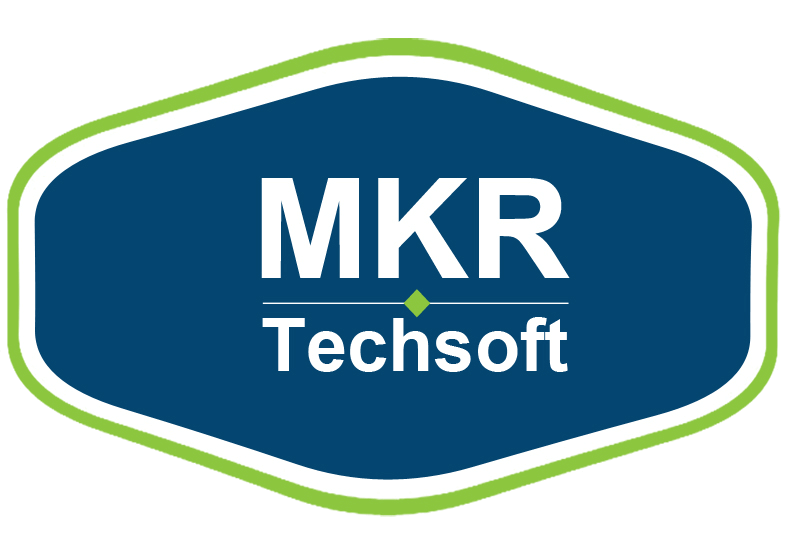In the ever-evolving digital marketing landscape, the tension between personalization and privacy has been a persistent concern for businesses. Consent based marketing, heralding a paradigm shift in the industry, offers an elegant solution that champions user privacy while delivering effective personalization. As a distinguished digital marketing agency specializing in SEO digital marketing, we comprehend the transformative impact of consent based marketing and its myriad advantages.
Decoding Consent Based Marketing
Before we delve into the array of benefits, let’s elucidate the essence of consent based marketing. This approach hinges on acquiring explicit consent from users before harnessing their data for marketing endeavors. It fosters a relationship characterized by transparency, trust, and empowerment, ensuring users remain in control of their data.
Navigating the Digital Marketing Arena – Reconciling Personalization and Privacy
Over the years, personalization has been a coveted goal for digital marketers, primarily due to its manifold benefits, such as augmented engagement, heightened conversion rates, and elevated customer satisfaction. Nonetheless, personalization often comes at the cost of user privacy, stoking apprehensions about data misuse and breaches.
Benefits of Personalization
Enhanced User Experience: Personalization customizes content and recommendations, culminating in a more immersive and pertinent user experience. This not only boosts user engagement but also fosters a sense of being appreciated. For example, consider an online retail platform that recommends products tailored to a user’s past buying decisions or browsing behavior; such an approach enhances the overall shopping journey.
Elevated Conversion Rates: Targeted messages and product suggestions are inclined to resonate with users, leading to an upswing in conversion rates. When users encounter products or services customized to their likes and desires, it increases the likelihood of them completing a purchase. Personalized email campaigns, for example, have been known to deliver significantly higher conversion rates compared to generic emails.
Amplified Customer Loyalty: Personalized interactions nurture trust and loyalty, rendering customers more inclined to return for future interactions. When users experience a sense of being recognized and valued, they are more inclined to evolve into enthusiastic supporters of the brand. Loyalty programs that offer tailored rewards or discounts to repeat customers are prime examples of how personalization can enhance loyalty.
Improved Content Engagement: Customized content guarantees that users receive material tailored to their interests and requirements, leading to increased involvement with blog articles, videos, and other content resources. For example, a news portal that presents articles relevant to a user’s past reading preferences is more inclined to maintain user engagement and encourage return visits.
Privacy Concerns
Data Breaches: High-profile data breaches have underscored concerns about the security of personal data. Users are increasingly wary of sharing their information due to the inherent risks related to data breaches. Well-publicized breaches like the Facebook-Cambridge Analytica scandal have amplified these concerns.
Lack of Control: Users often perceive themselves as having limited control over their data, engendering discomfort and mistrust. They desire a greater degree of control over the collection and utilization of their data. The ability to opt out of data collection or request data deletion has become a fundamental expectation for many users.
Regulatory Pressure: Regulations such as GDPR and CCPA have enforced stringent provisions concerning data privacy, wielding penalties for non-compliance. Not adhering to these regulations may lead to substantial penalties and harm a brand’s image.As an example, failure to adhere to GDPR regulations can result in penalties reaching as high as €20 million or 4 percent of the company’s worldwide annual revenue, depending on which amount is greater.
The Multifaceted Benefits of Consent Based Marketing
Now, let’s embark on an exploration of the myriad advantages that consent based marketing brings to the fore.
Championing User Autonomy
Consent based marketing empowers users by granting them the agency to control their data. Users who willingly provide consent are more likely to engage with the brand as they are aware that their preferences are being honored. This autonomy fosters a sense of respect and trust. Users value the capacity to make well-informed decisions regarding the utilization of their data.
Fostering Trust and Transparency
Transparency forms the bedrock of consent marketing. When users are educated about how their data will be utilized and can effortlessly opt in or out, it nurtures trust in the brand. This trust is invaluable as it can lead to stronger customer relationships and word-of-mouth referrals. Trust is a critical factor in brand loyalty, and consent based marketing builds it by being open and honest with users.
Legal Adherence
Adhering to the tenets of consent based marketing equates to compliance with data privacy regulations such as GDPR and CCPA. Escaping legal entanglements and fines is a conspicuous benefit. Additionally, when users see that a brand takes data privacy seriously, it can enhance the brand’s reputation as a responsible entity. Being compliant with data privacy regulations not only avoids legal trouble but also demonstrates the brand’s commitment to ethical data practices.
Pristine Data Quality
Consent based data is inherently more reliable and precise since it emanates from users who have a bona fide interest in your offerings. This translates to more targeted and efficacious marketing campaigns. By focusing on users who are genuinely interested, businesses can grant their marketing resources more efficiently, resulting in cost savings and higher ROI. Precise and unblemished data serves as the cornerstone for successful marketing endeavors, guaranteeing that marketing initiatives are targeted towards the appropriate audience, thereby minimizing resource wastage.
Revitalized User Engagement
When users proactively furnish consent, it serves as an indicator of their interest in the brand. Consequently, they are more predisposed to engage with emails, advertisements, and other marketing assets. The enhanced engagement has the potential to result in elevated click-through rates and improved conversion rates. When users are actively engaged, they tend to react positively to marketing endeavors, yielding superior outcomes and greater revenue generation.
Enhanced Reputation
Operating under a consent based model can elevate a brand’s reputation. Consumers value companies that prioritize their privacy and data security. When users see that a brand respects their privacy and actively seeks their consent, it can create a positive insight into the brand, which can translate into increased trust and loyalty. Good recognition is a valuable asset that can attract new clients & retain existing clients as well.
Efficiency in Resource Allocation
With consent based marketing, resources are channeled towards users who have demonstrated a genuine interest. This means that marketing efforts are not wasted on disinterested users, resulting in more efficient resource allocation. Businesses can focus their marketing spend on users who are more likely to convert, leading to a higher return on investment. Efficient resource allocation ensures that marketing budgets are used effectively, maximizing the impact of marketing campaigns.
Reduced Churn Rate
Consent based marketing engenders a deeper and more authentic connection with users. When users believe that their choices are valued, they tend to stay committed to the brand. This may lead to a reduction in customer churn, a critical element in attaining ongoing business success. Reducing churn is often more cost-effective than acquiring new customers, making it a strategic advantage for businesses.
The Blueprint for Effective Implementation
Now that we’ve illuminated the merits, it’s imperative to discern how to execute consent based marketing proficiently.
Transparent Communication
Effectively communicate with users regarding data collection and utilization. Employ plain and understandable language to ensure users comprehend what they are assenting to. Provide clear and easily accessible information about how their data will be used and offer options for opting in or out. Transparency serves as more than just a legal obligation; it also plays a vital role in establishing trust with users.
Seamless Opt-In and Opt-Out Mechanisms
Simplify the process for users to provide or rescind their consent. Intuitive interfaces for managing preferences can significantly bolster trust. Make certain that users have no difficulty modifying their preferences, and ensure that the process remains intuitive and user-centric. Making it easy for users to control their data preferences demonstrates respect for their autonomy and builds a positive user experience.

Rigorous Data Security Measures
Devote resources to robust data security measures that fortify user data protection. Spotlight these security protocols in your privacy policy to instill user confidence. Effectively convey the measures taken to safeguard user data and ensure its security. Data security encompasses more than just compliance; it is about preserving the trust of users. Users require assurance that their data is in secure hands.
Regular Consent Review
Periodically revisit and refresh consent to ensure that user preferences remain up-to-date and valid. Regularly ask users to review their preferences and provide the opportunity to update them. This ensures that users have the most relevant and accurate information on file. Keeping user preferences up to date is essential for delivering personalized experiences that align with their current needs and preferences.
Educational Empowerment
Equipping your marketing team with comprehensive knowledge about consent based marketing principles and practices is pivotal to ensure uniform and ethical implementation. Training your team on the importance of consent, data privacy regulations, and best practices will help them execute consent-based marketing campaigns effectively and in compliance with the law. Education is an ongoing process, and keeping your team informed about the latest developments in data privacy is crucial for long-term success.
Conclusion
In the enduring clash between personalization and privacy in digital marketing, consent based marketing emerges as an equilibrium point. It not only facilitates personalized experiences but also upholds user privacy and aligns with regulatory mandates. As a preeminent SEO digital marketing agency, MKR Techsoft understands the intrinsic value of this approach, not merely in terms of legal conformity but also in cultivating trust and nurturing enduring customer relationships. By embracing consent based marketing, businesses can harness the potency of personalization without compromising user privacy, thereby setting a novel standard for ethical and efficacious digital marketing practices. Consent based marketing isn’t just a compliance requirement; it’s a strategic advantage that can enhance user engagement, build trust, and drive long-term business success.
At MKR Techsoft, we specialize in helping businesses navigate the complex landscape of digital marketing, including consent-based strategies. Contact us today to explore how we can tailor a consent-based marketing approach to elevate your brand’s online presence and customer engagement.
Reach out to MKR Techsoft for all your consent-based marketing requirements. We prioritize your success above all else!













